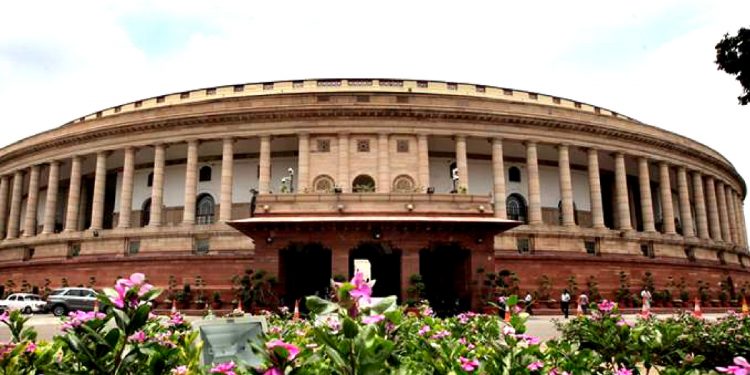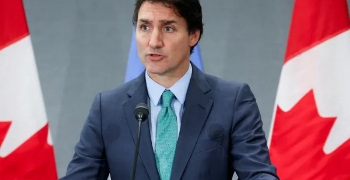A perception has been sought to be created in a crafty, clever way that an elected government that has got the popular mandate to rule must be allowed to do whatever it chooses without any scrutiny of its actions by either its critics or the judiciary. Different political parties and their top leaders have been subtly propagating a new theory of democratic governance which requires the people only to cast their votes so that political parties winning the majority can form a government and then the people can go back home to sleep in peace without worrying what the government does. Any criticism of the government’s actions either by Opposition parties, the civil society or the judiciary, according to this theory, is unwarranted and construed as undue interference in the work of an elected government. The fundamental mistake of such a flawed thinking is that democracy is not alive only for one day when the people go to the polling stations to elect their representatives. Elections are but a small part of democracy, while the vigilance of the people should be round the clock – 365 x 24 hours – to ensure a government does only that which is for the wellbeing of the citizens. The government must not behave in an autocratic manner whereby it can do whatever it likes and the people have no right to call its actions into question. The present government at the Centre has been systematically branding its critics as anti-nationals and collaborators of terrorists and invoking colonial-era laws of sedition or other draconian laws to silence them.
Even the Election Commission of India has deplorably succumbed to the pressure of the government recently to abdicate its role as an independent constitutional body. The Chief Justice of India NV Ramana admirably exposed December 26 the mischief that the executive has been trying to do to harm the democratic fabric of the country. He expressed grave concern over the executive’s “growing tendency to disregard and disrespect court orders” and sought to counter the myth being created that a popular majority is justification enough for arbitrary actions taken by a government. Like a wise man of law, Justice Ramana asserted every government action is mandatorily required to comply with the Constitution. “If the judiciary does not have the power of judicial review, then the functioning of democracy in this country would be unthinkable,” he said, cogently explaining the basic principle of democracy in no uncertain terms.
Being the head of the country’s judiciary, Justice Ramana reminded the executive that the higher courts have the mandate to ensure that executive decisions and legislations were in conformity with the Constitution. The constitutional courts cannot show any slackness while testing the validity of a decision by a government, however much enjoying popular support, on the touchstone of the country’s Constitution.
Of late, the government blatantly showed scant regard for the Constitution, bypassed the Parliament and enacted laws trampling down parliamentary procedures framed to defend the Constitution. This was done knowing well that the action would invite judicial scrutiny. The three controversial farm laws, that now stand repealed after marathon protests, pain and death of farmers, are a glaring example of such behaviour. The device of Select Committee, the CJI explained, has been created as a system of checks and balance to forestall arbitrary government actions. But, in the case of the farm laws, the Bills were not sent to the Select Committee despite the Opposition’s demand made on the basis of rules of business. These laws were also liable to judicial challenge as they encroached on powers constitutionally granted to the states. But, the government was under such delusion that the mandate it has got authorises it to throw to the wind constitutional principles. It had eventually to bow to the wishes of the farmers seemingly because of electoral compulsions and not for fear of judicial scrutiny. This has even cast doubts in the minds of many that if the ruling party retains power in the crucial UP elections to be held in a few months from now, it may again attempt to introduce the farms laws in a different garb.
Quite rightly did the CJI point out that ensuring justice is not the responsibility of the judiciary alone. Unless the executive and the legislature make sincere efforts to make laws with a clear foresight, fill judicial vacancies, appoint prosecutors, strengthen infrastructure, the judiciary alone cannot be held responsible for the collapse of democracy.
The CJI has also laid bare two other infirmities affecting true democratic functioning of a government – biased work of public prosecutors and functioning of the investigating agencies. People’s faith in public prosecutors has eroded because of their marked tendency to present cases in a weak manner, suppress evidence that may exonerate the accused and oppose bails automatically without applying their mind to suit government interests. For this, the CJI’s suggestion to form an independent body to recruit public prosecutors is laudable.
Last but not the least is the CJI’s criticism of the functioning of a section of the media which indulges in trials parallel to court trials without apparently being able to “distinguish between right and wrong, good and bad and the real and fake. Such media outlets act as the government’s echo chambers to mould public opinion in favour of the government so that the latter can escape public scrutiny.”
The CJI’s concerns and prescriptions are timely and, if implemented, will do a world of good to strengthen democracy.






































